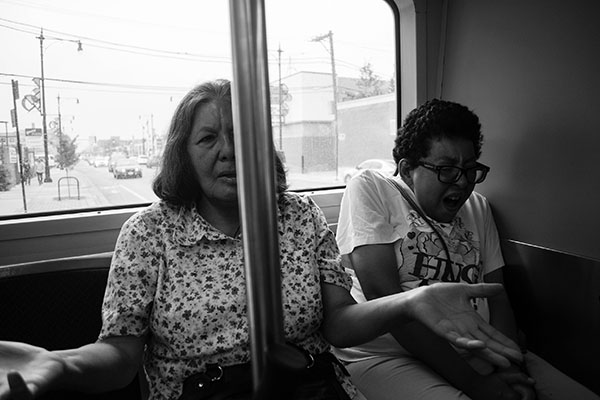
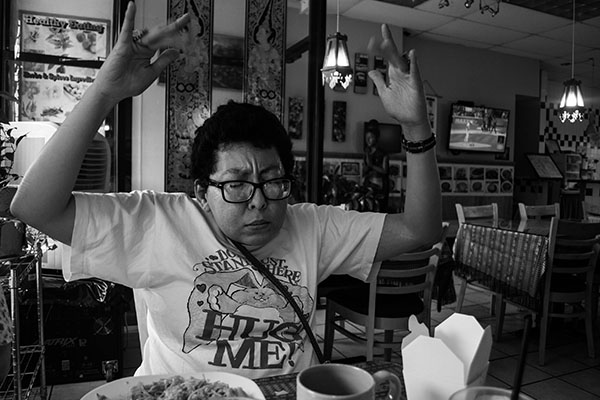
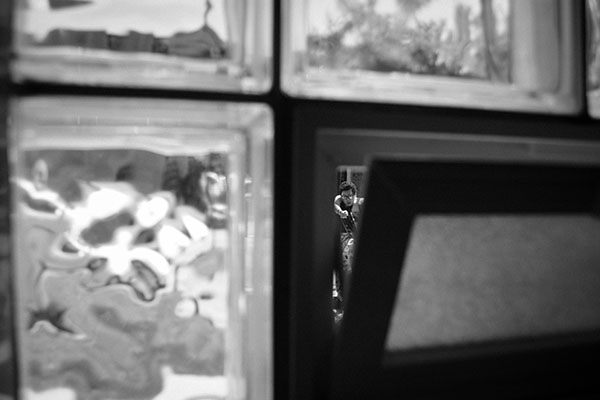
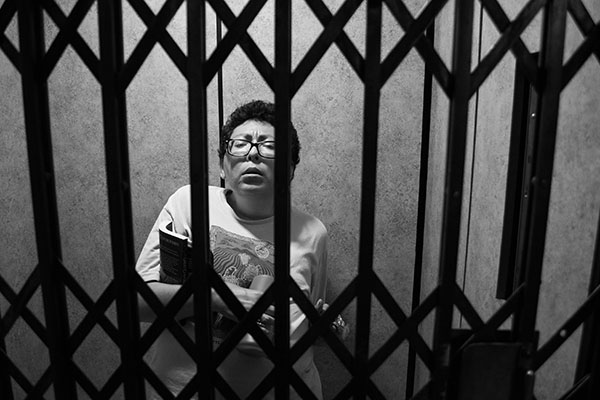
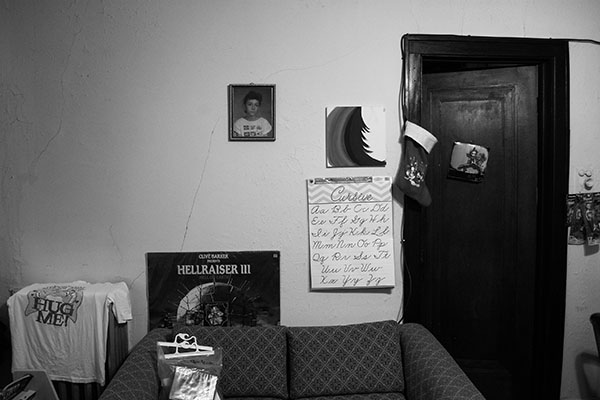
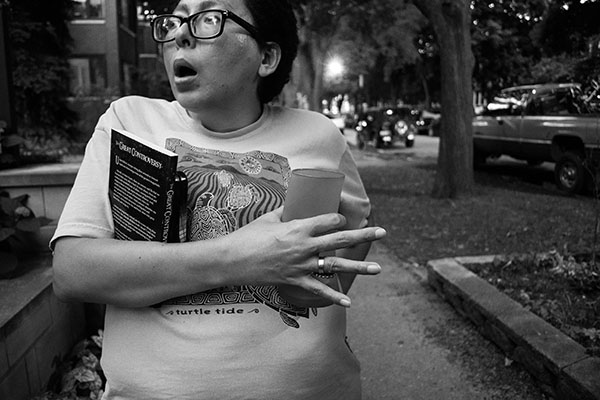
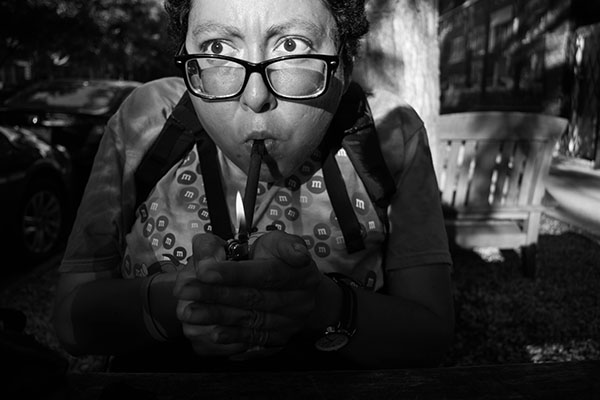
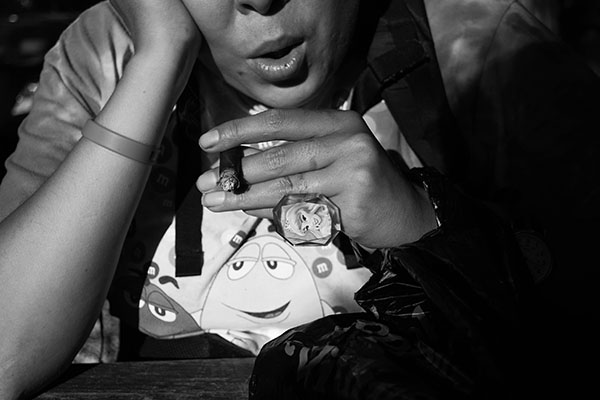
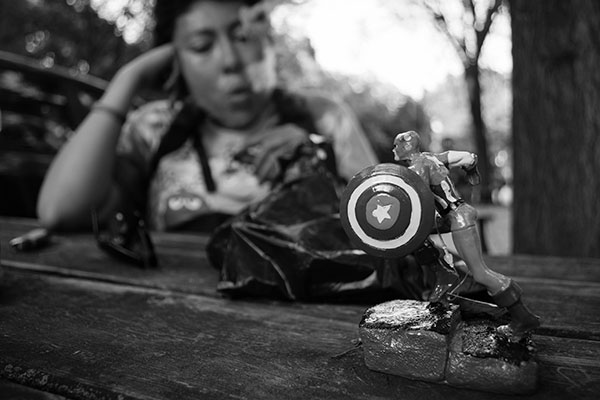
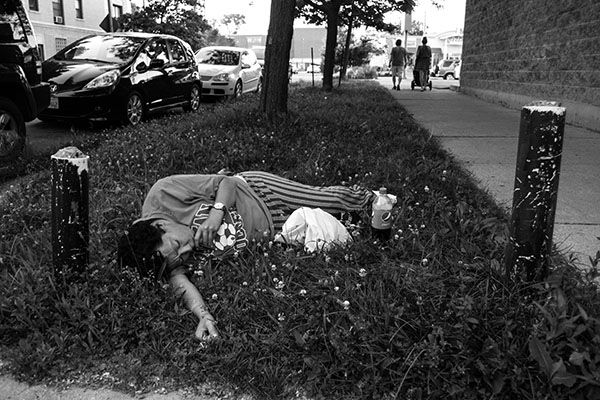
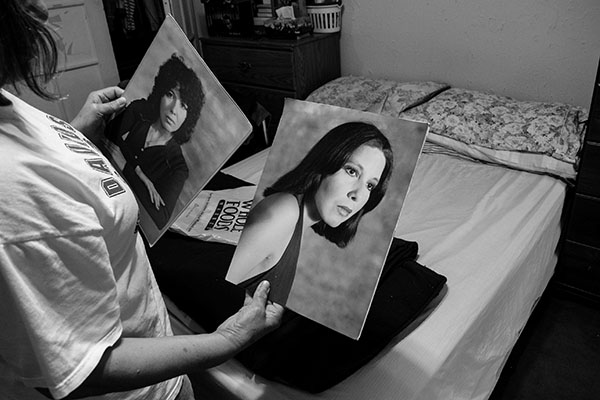
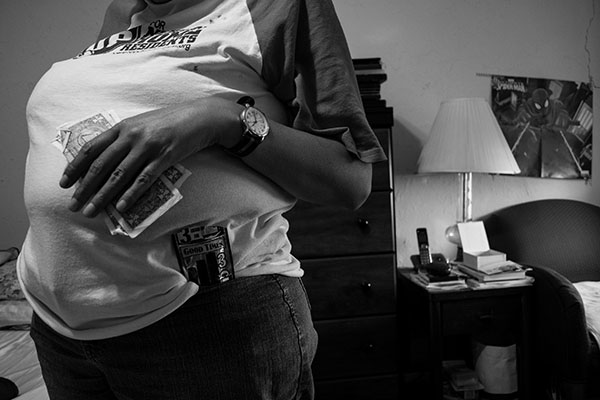
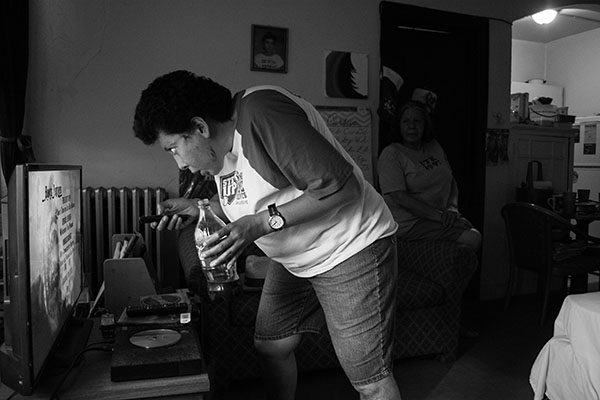
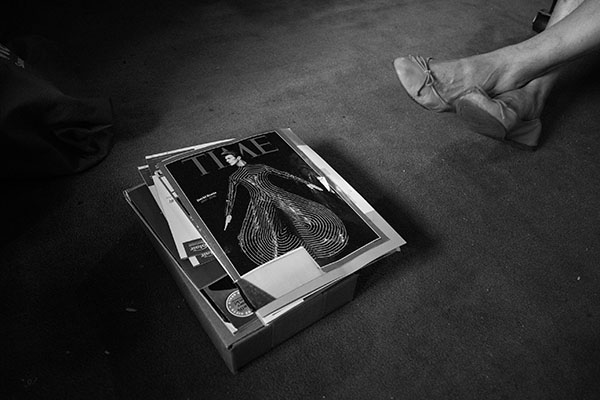
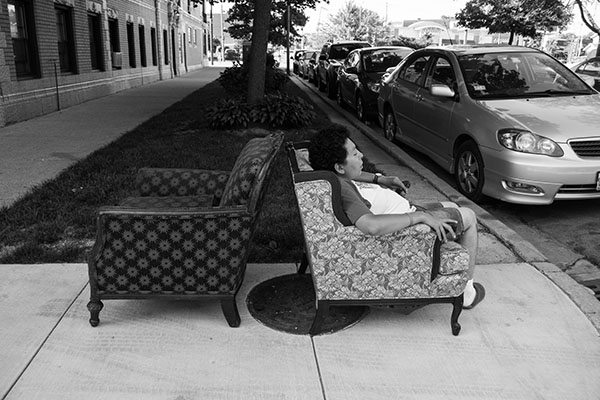
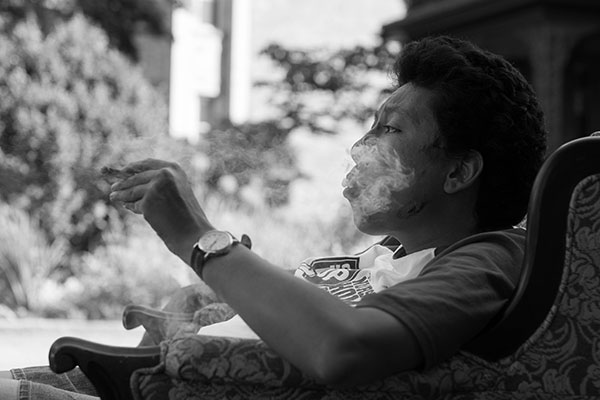
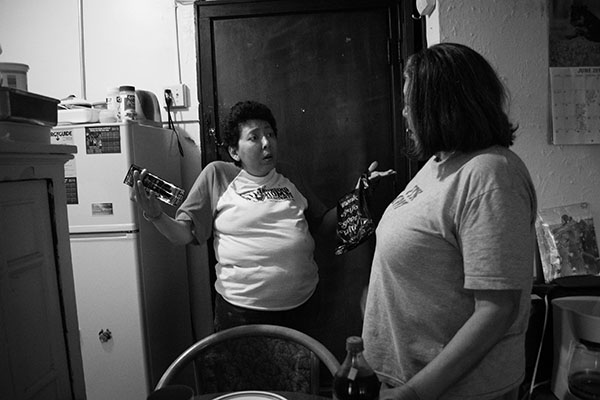
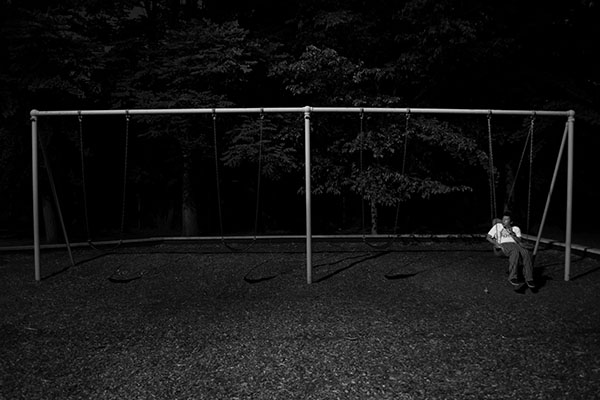


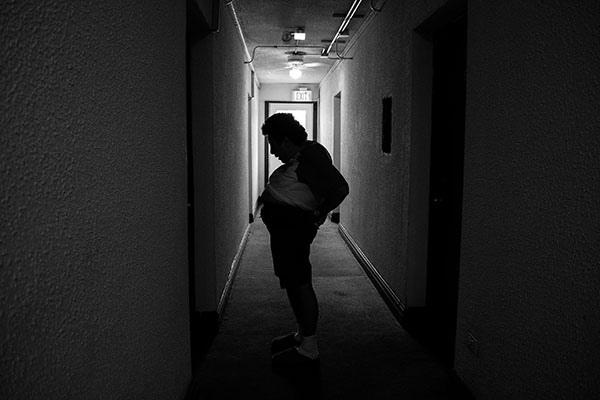
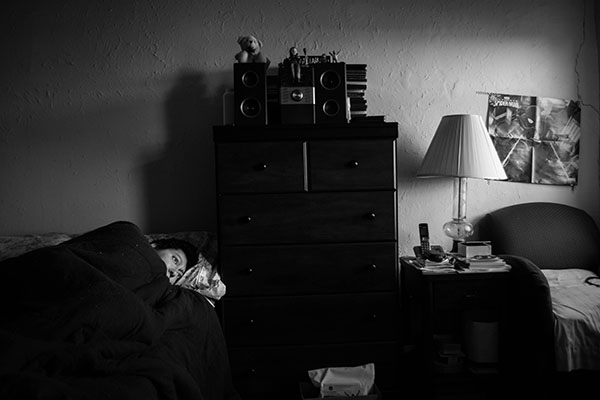
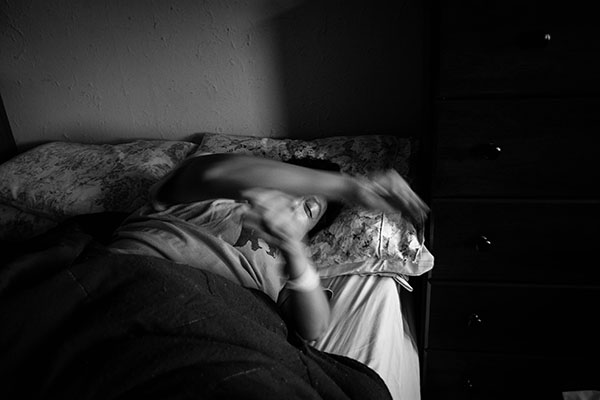
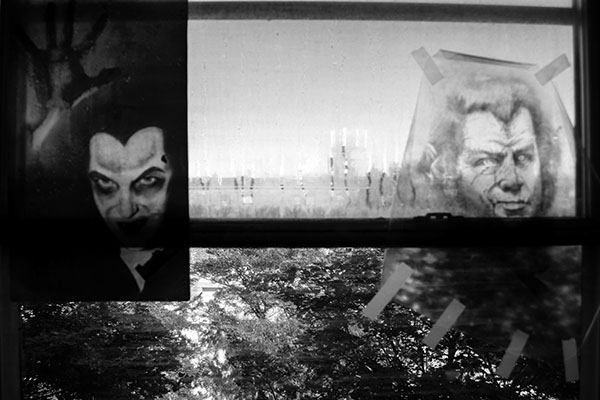
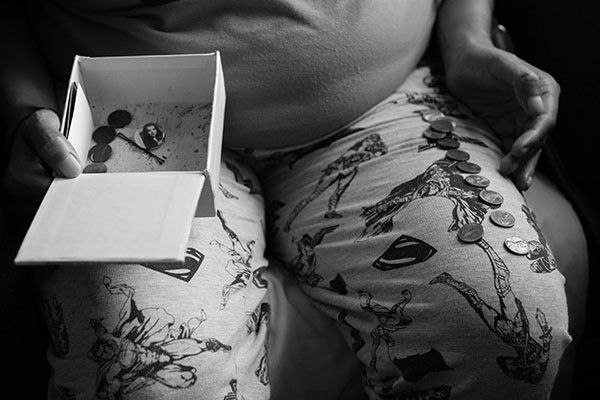
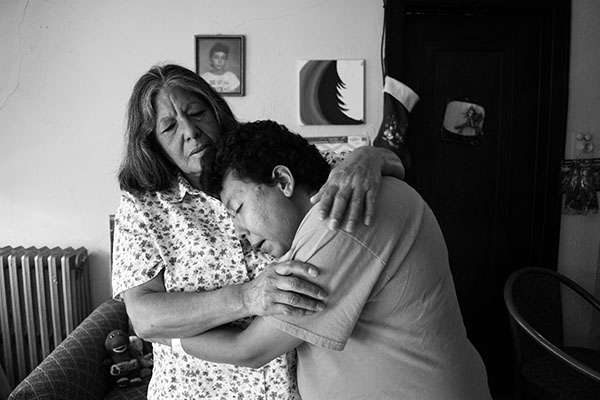
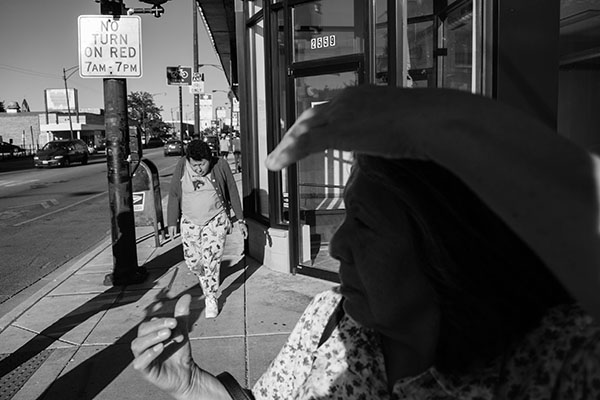
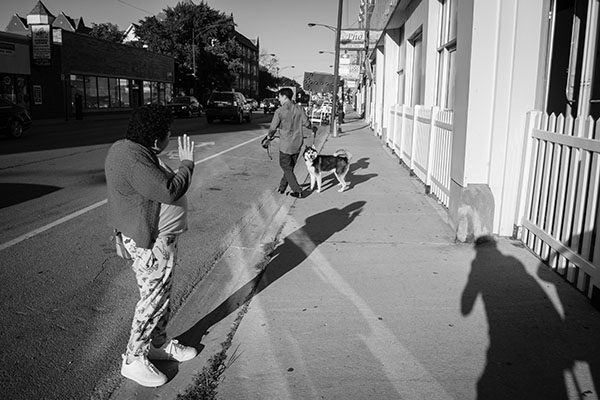

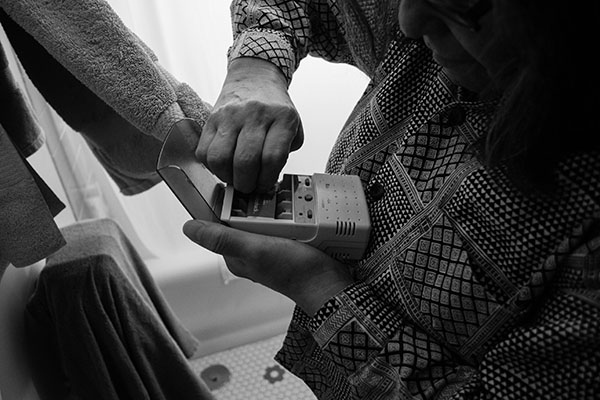
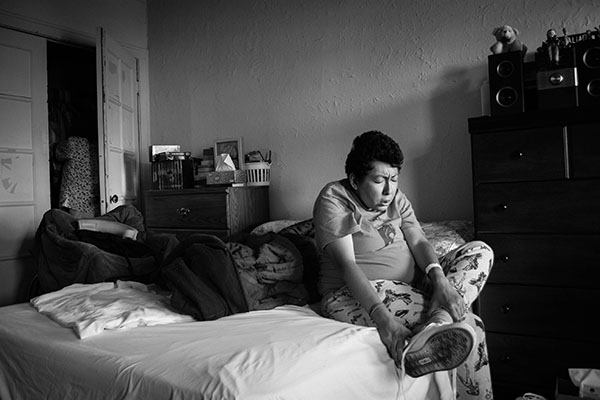
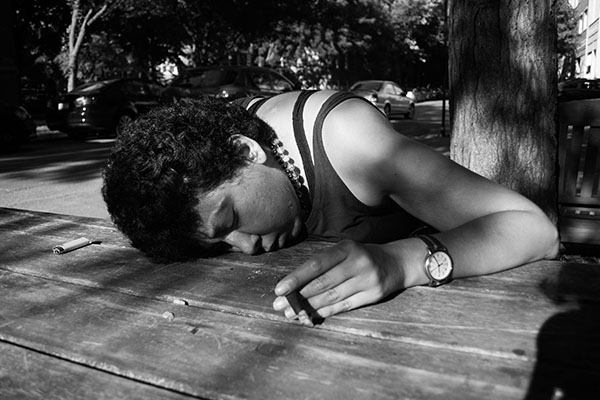



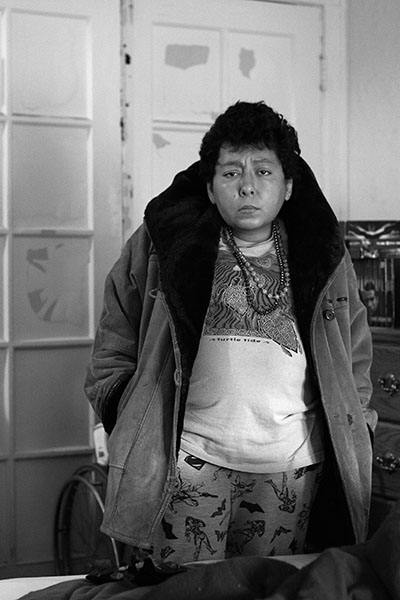
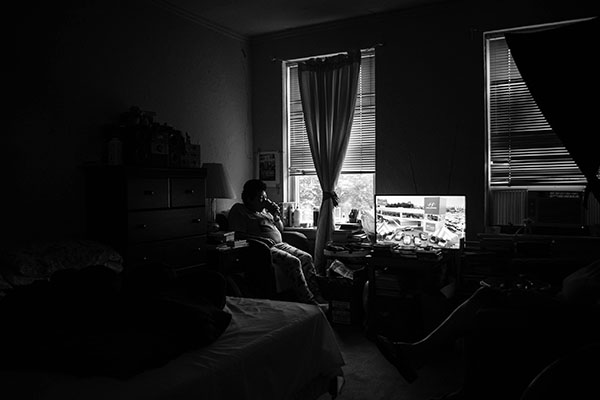
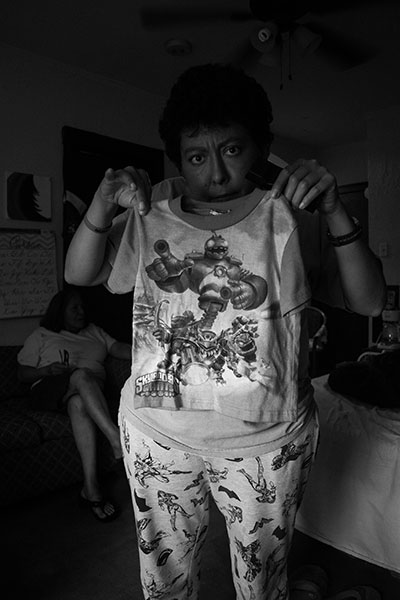
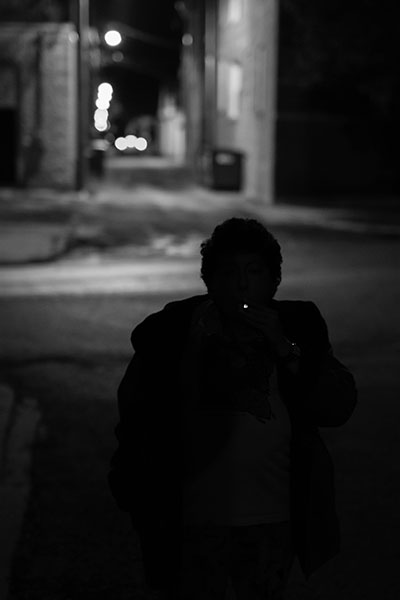
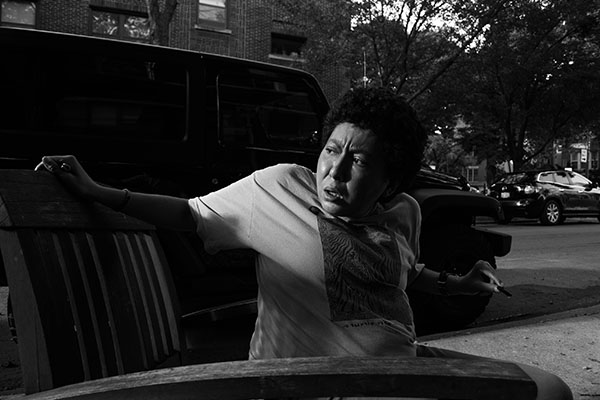
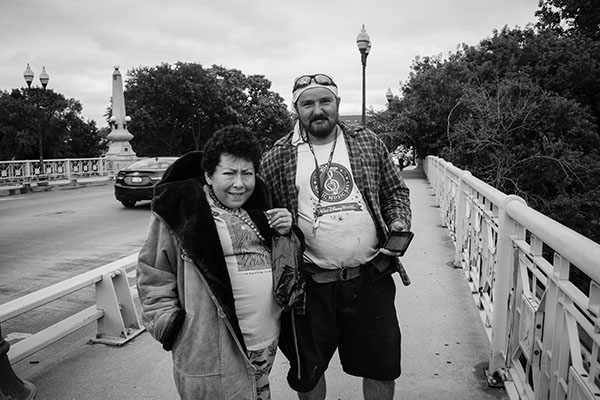

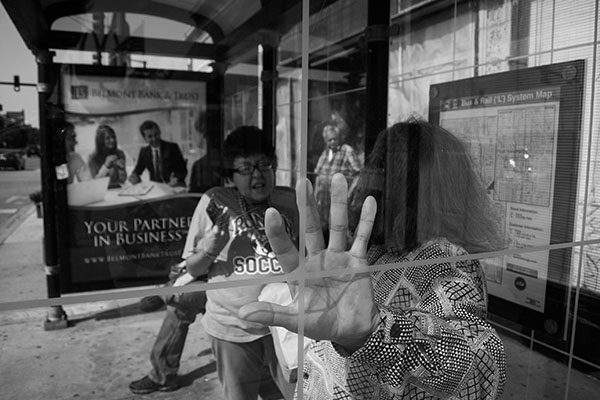
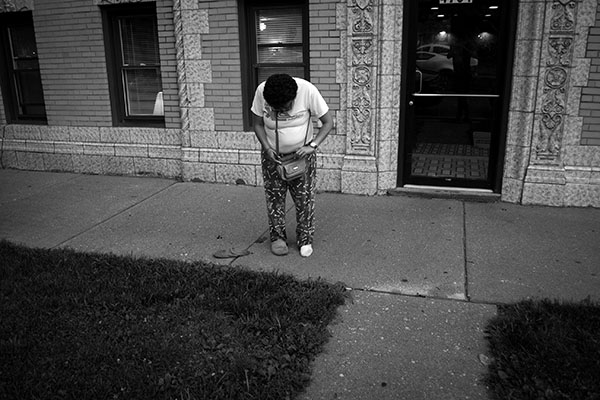
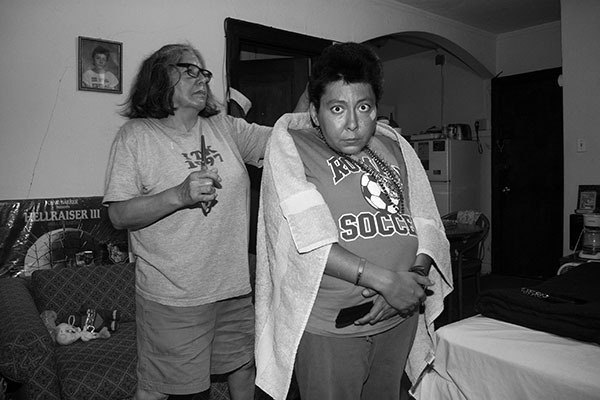
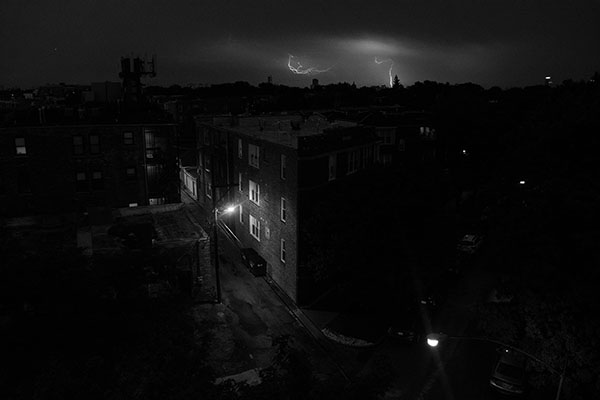
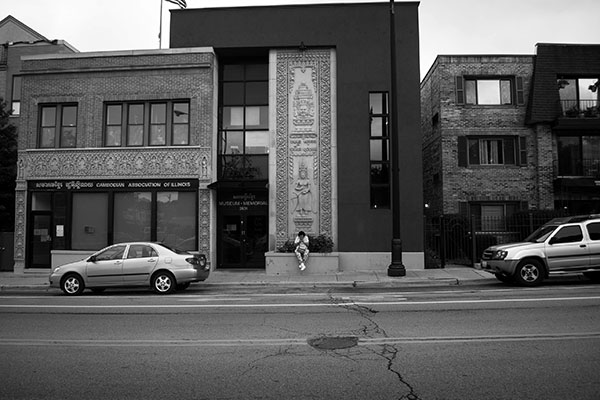

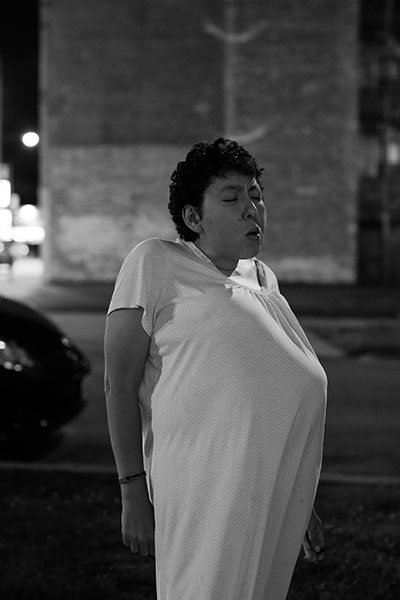
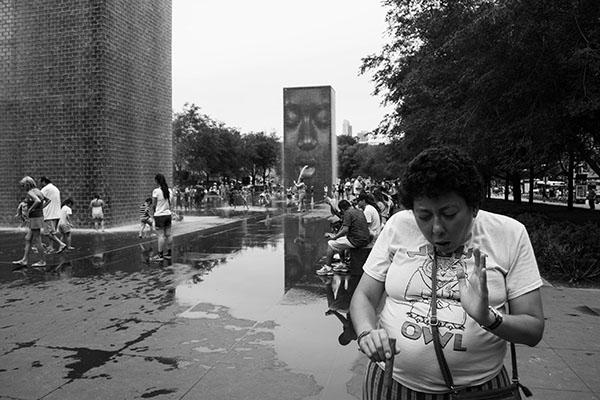

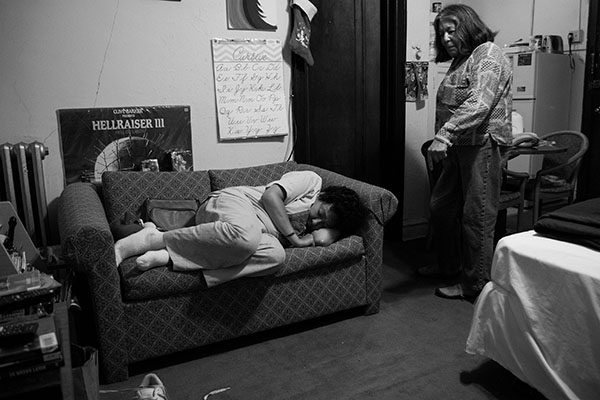
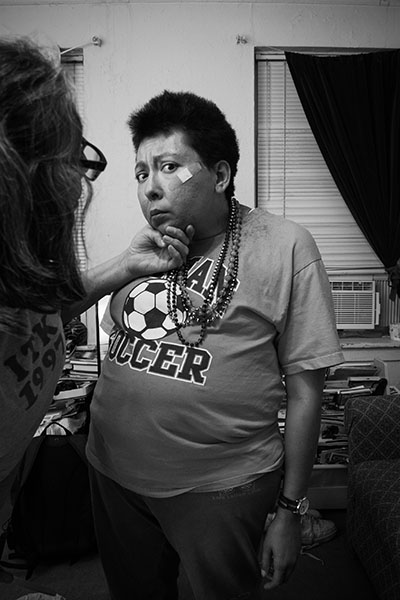

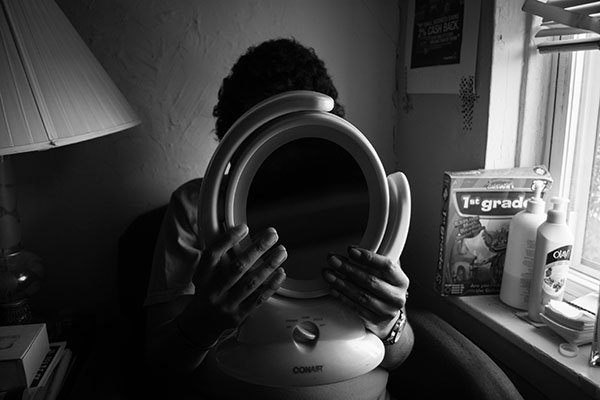
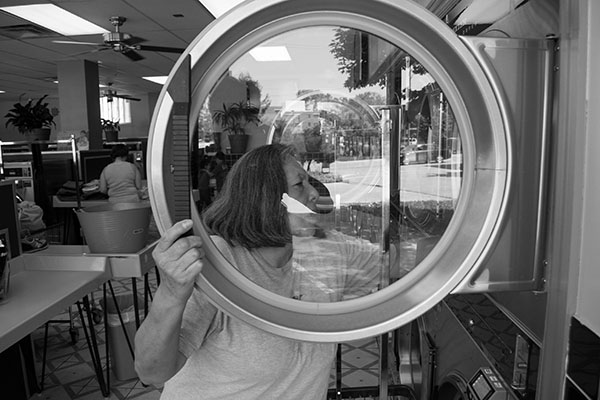
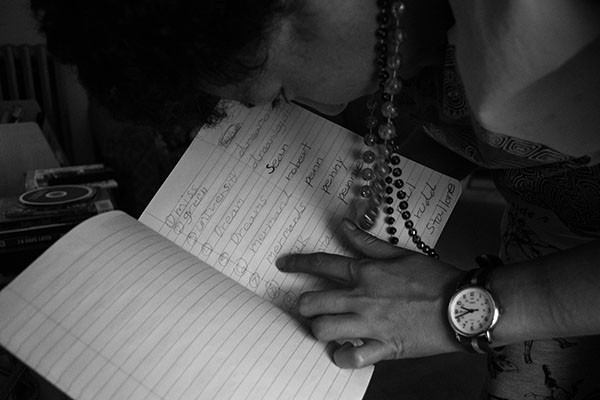
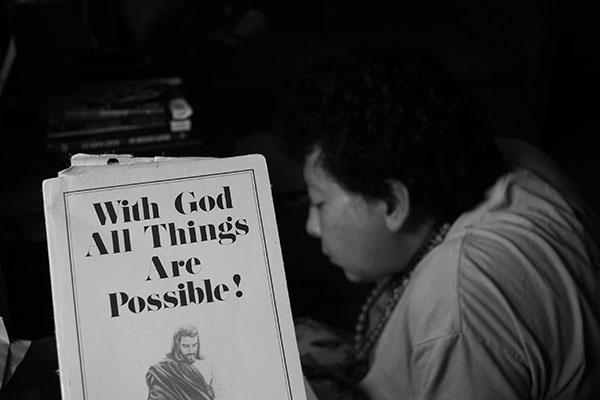
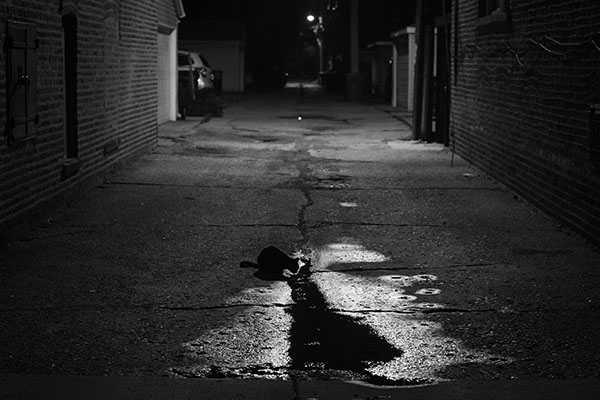
Photo-essay
I believe that each of us wants to live their own dream... if any. I lived mine, in the last five months while I was in Chicago. It was not only because I had the opportunity to visit Chicago and do what I know best, photography, but also because, after two months of constant wandering through the city and meeting new people from the world of art, I met Gloria Rand (34) and Gloria Ornelas (67). They were mother and daughter who lived on the third floor, apartment 302, in the old yet renovated building located on the "Virginia/Lawrence" Avenue (Lincoln Square) where I was staying with my mother as well. Our apartment was on the ground floor and occasionally, when I went out in the morning or when returning late in the evening, I was able to see Gloria Rand. Always smoking fragrant cigars, visibly surprised, she was speaking to herself.
I could not let myself speak to her, although we were neighbors. I felt precariously, maybe because that was the first time I had been in Chicago or maybe, due to the fact that there were so many murders every day in this city of Chicago. I learned more about Gloria Rand from my mother, as occasionally I made her tell me interesting things about our neighbors. Thus, I learned that in 2014 she got cancer, which later spread all over her body. "Her minutes, days, and months are over," my mother told me bluntly. It was all my mother knew, but still it was enough to deeply touch me and raise a feeling of deep empathy inside me.
The third month of my stay in Chicago had just started. Under the original plan, I was supposed to return to Macedonia by the end of that month, but one event definitely changed my plan: meeting Gloria Ornelas, the mother of Gloria Rand. I met her in the laundry room located in the same building where we lived and where local people were inclined to spend much of their time. I had a chance to personally meet and talk with many of them. Meeting Gloria Ornelas was so straightforward and earnest; hence immediately after the first conversation I had a feeling I had known her a lifetime. She talked a lot using a Spanish-American accent, while I just listened, because I almost could not come to a word. She told me about the illness of her daughter, being the greatest problem in her life. However, during the conversation I found out that, actually, even Gloria Ornelas (the mother) had been ill having had cancer in the region of her armpit. As opposed to her daughter, she was able to detect the illness in time and when she was 67 years old, she managed to stabilize the situation by means of various medical gadgets implanted in her head and ears.
After this meeting, there were few more and finally I moved into their apartment. Gloria Ornelas needed a person who would take daily care of her ill daughter while, as a mother, she was busy receiving medical examinations, which were done very often. I agreed to help; however, I refused to accept any compensation for this because I saw their need for help and support, and my need to show humaneness and understanding for these people. Thus, our friendship began. The photos came later, by themselves. At one point, I wanted to take pictures of their everyday life and then have these pictures as material for my photo-essay. The proposal was accepted without any problem. This project was so initiated.
Gloria Ornelas and Gloria Rand. Mother and daughter. Same first names but different last names. Gloria Ornelas was born on May 30, 1949 in a small town in Texas, while Gloria Rand was born on April 4, 1982 in the city of Chicago. Gloria Ornelas came from a large family with seven siblings; on the other hand, Gloria Rand, in addition to the family on the maternal side, had several half-brothers and half-sisters. However, as they claimed, for twenty years they had been living a lonely life, without any contact with family members and almost without any friends whatsoever. Gloria's father had been a male model, then a police officer, and finally a detective who later had problems with the law. He abandoned his family when Gloria was just a baby. The main reason for divorce, according to the mother, had been the fact that he was a great womanizer. Gloria had inherited her father's last name, Rand, but often times when doctors called her by her last name as written in her social security records, she became visibly nervous and aggressive.
On the "Father's Day," I was with Gloria Rand. We sat on one of the neighborhood benches and talked, while Gloria continually looked to the sky as if she were counting each plane that flew over Chicago at an interval of 20 seconds. She told me that the only thing she remembered about her dad was when she was a child they traveled together on a plane. Later, noting that her dad at the moment was in the apartment, she asked me to go there together to take some pictures of her. We arrived in the apartment only to find her mother there. When I asked Gloria where her father was, she emphatically replied that she had dedicated the "Father's Day" to her very mother. During the next three months, while I stayed with them, I had the feeling that whenever Gloria Rand talked with her mother it seemed as if she were actually talking to her father.
Our first meeting happened upon a proposal made by Gloria Ornelas. We met at a Chinese restaurant because they loved Chinese food, just as I did. Later, visiting Chinese restaurants became our routine. Chicken fries or broccoli became our menu. They would never let me pay, even though I wanted to.
At the first meeting, I realized that I would have an unusual communication with Gloria Rand. And so it happened. She often talked incoherently, while I had to make efforts or even pretend as if I understood her. Having spoken just a sentence, quite unexpectedly she began to talk about her demons, toys, and horror films, which existed only in her own subjective reality. At one moment she could laugh loudly, and already at the next moment start crying for her "imaginary dog" Perrito. Although we spent entire days and nights together, there were times when she could not recognize me because of her repeating hallucinations. After two or three days spent together, she could even tell me, "Hey man, so I think I know you, you're my friend since the first century."
Very often I felt that when I was not with Gloria, she was somewhere around me. When I would wake up in the morning, I could hear her through the window talking to herself. I would peek to see what was happening - and it was nothing new: she would smoke one after another of her favorite cigarettes. When one would see how much she smoked and her great passion in doing so, one would not consider that it was someone who was facing a terminal illness. The fragrant cigars Gloria smoked left such strong smell that it was forbidden for her to smoke them inside the building she resided. For cigarettes, she used to spend about $15 per day and, actually, it was the major problem between her and her mother. Their monthly subsistence budget was very modest because both of them were not employed, so their funds came from church charity donations. There were times when her mother for many days would not give her daughter any money for cigarettes. This would make the daughter very angry and she then would start to verbally attack her mother. The family quarrel would end when daughter Gloria Rand would leave the apartment for few days staying in nearby parks. She was aware that smoking would further endanger her health but she said doctors had already told her that anyway she was to die regardless of the heavy smoking of hers. Despite facing death in extremely difficult circumstances, Gloria Rand knew at times to be cheerful and funny. Holding a cigarette, she would outright start dancing to music or go to the nearest music store and listen to bands like "Cypress Hill."
Music was not the only thing that interested her. She paid much attention to her dressing style and loved experimenting with fashion accessories like rings, glasses, scarves, and handbags, while often losing them. As time passed, I learned more and more things about the daughter, Gloria Rand. While we were together, I felt that Gloria was happy that she had an opportunity to talk to someone. When not experiencing seizures and hallucinations, Gloria was very intelligent and fully aware of her immediate condition. One night in the late hours, she told me: "Zoran, you know what? I will not be reborn again " - and began to cry. When talking about medicine and doctors, her mother often would become angry. When I asked them why this was so, they told me how in fact Gloria Rand became ill. In 2014 after receiving wrong medication prescribed by a local doctor, Gloria would get cancer, which later spread throughout her body. On top of everything, she also acquired a mental disorder. Before that, as I was told, everything was fine. Gloria Ornelas, the mother, never told me the name of this doctor or could have forgotten it; however, she told me that the doctor was serving a prison sentence. At first, the whole story seemed very shocking. Although I fully believed what they had claimed, I also told myself, "If I write this in my photo-essay without further research, it would be then a mere speculation." And of course, "Google is your Friend." Dr. Farid Fata was the name of a specialist doctor who in 2014, in Chicago, gave wrong medicaments to more than 550 patients of his. One of them was Gloria Rand, and there were those who had already died. This doctor was then sentenced to a prison sentence of 45 years. With regard to this case, BBC reported that there were grounds for suspicion this criminal offense had been committed with intent to destroy innocent lives; i.e., it was considered a premeditated criminal offense.
What was certain was that Gloria Rand for three years had an implant in her stomach, which allegedly was helping her calm the stress. She also took strong medication daily to keep herself alive while often experiencing seizures that were manifested physically and psychologically. Moreover, I was deeply shocked by the fact that her skin had started changing from white to black from the very start of her treatment by this Dr. Farid Fata.
Today, when I look back, I realize that Gloria was one strange experience of mine. Maybe not the best, but honestly enough for a good story that I wanted to tell. When arriving in Chicago, I had plans that later I did not finish completely. I was for the first time in Chicago and did not expect to have many friends there; on the other hand, every day I used photography as a means of satisfying my need to see and hear different stories while meeting new local people. After two months of street photography, I was getting somewhat tired. I felt that I wanted something more, something greater than those street photos along the blocks of Chicago. However, living with Gloria Rand definitely was not part of any plans of hers or mine.
While taking pictures, I kept asking myself whether it was good or bad to photograph the two Glorias of Chicago. I had the same dilemma when I started thinking about publishing these photos, especially because from the beginning I felt I was member of this Mexican family. A part of me knew that I was a photographer to whom meeting Gloria should have happened. However, I wondered why meeting me should have happened to Gloria. Perhaps because she enjoyed the conversation with me. Maybe when communication became difficult due to her hallucinations we managed to reconnect through photography. The moment I would start taking pictures of her, her condition would immediately change. She would first become calm, and then being in good mood, would start chanting: "One more, one more, one more..., Zoran."
Gloria Ornelas was rather pleased that someone wanted to understand and find ways to communicate with her daughter.
During the photography process, it was very important for me what I had as piece of information, while there were many pieces of information as such. Related and unrelated. Sometimes, while taking pictures, I felt like something I was missing. While trying to find out what I was missing, one day I asked her to tell me her entire life story, but she did not want to say much. I suggested that she write it down if it was easier for her to do so, but she refused. I was left with the impression that there was something "more" that was hiding behind the face of Gloria Rand, while it was almost impossible to detect it only through the process of taking pictures. In fact, it was the very reason I decided to shoot this project in black and white photography.
Finally, after three months of living together with the two Glorias, I felt strange: both happy and inspired, and very sad. I remember that the last day of my stay I had rejected hanging out with my family so I could shoot Gloria Ornelas cutting the hair of her daughter Gloria Rand. When I finished taking pictures, I did not want to formally say goodbye. I just left saying we would stay in touch. The next morning, I quietly left a letter under their door. Now, I am writing this text in Macedonia. My mother occasionally sends me photos of Gloria Rand. Sometimes we see each other on Skype. Moreover, I know that eventually, we will meet again.
Zoran Shekerov